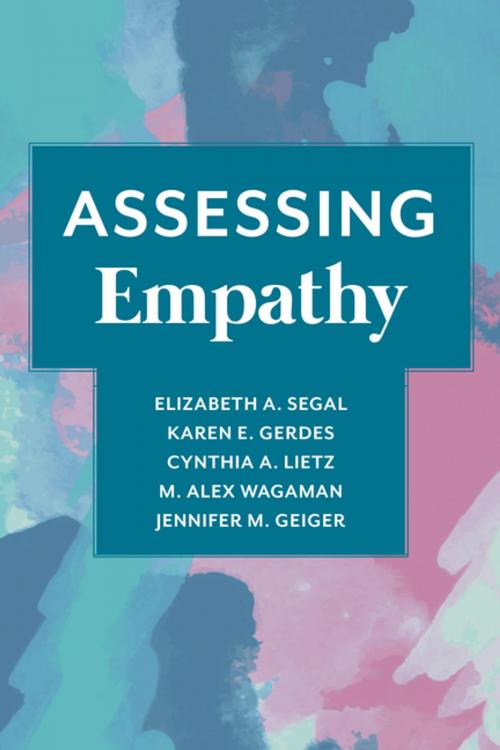Assessing Empathy
Nonfiction, Social & Cultural Studies, Social Science, Social Work, Health & Well Being, Psychology, Cognitive Psychology, Emotions| Author: | M. Alex Wagaman, Elizabeth Segal, Karen Gerdes, Cynthia Lietz, Jennifer Geiger | ISBN: | 9780231543880 |
| Publisher: | Columbia University Press | Publication: | February 28, 2017 |
| Imprint: | Columbia University Press | Language: | English |
| Author: | M. Alex Wagaman, Elizabeth Segal, Karen Gerdes, Cynthia Lietz, Jennifer Geiger |
| ISBN: | 9780231543880 |
| Publisher: | Columbia University Press |
| Publication: | February 28, 2017 |
| Imprint: | Columbia University Press |
| Language: | English |
Empathy is a widely used term, but it is also difficult to define. In recent years, the field of cognitive neuroscience has made impressive strides in identifying neural networks in the brain related to or triggered by empathy. Still, what exactly do we mean when we say that someone has—or lacks—empathy? How is empathy distinguished from sympathy or pity? And is society truly suffering from an "empathy deficit," as some experts have charged??
In Assessing Empathy, Elizabeth A. Segal and colleagues marshal years of research to present a comprehensive definition of empathy, one that links neuroscientific evidence to human service practice. The book begins with a discussion of our current understanding of empathy in neurological, biological, and behavioral terms. The authors explain why empathy is important on both the individual and societal levels. They then introduce the concepts of interpersonal empathy and social empathy, and how these processes can interrelate or operate separately. Finally, they examine the weaknesses of extant empathy assessments before introducing three new, validated measures: the Empathy Assessment Index, the Social Empathy Index, and the Interpersonal and Social Empathy Index.
Empathy is a widely used term, but it is also difficult to define. In recent years, the field of cognitive neuroscience has made impressive strides in identifying neural networks in the brain related to or triggered by empathy. Still, what exactly do we mean when we say that someone has—or lacks—empathy? How is empathy distinguished from sympathy or pity? And is society truly suffering from an "empathy deficit," as some experts have charged??
In Assessing Empathy, Elizabeth A. Segal and colleagues marshal years of research to present a comprehensive definition of empathy, one that links neuroscientific evidence to human service practice. The book begins with a discussion of our current understanding of empathy in neurological, biological, and behavioral terms. The authors explain why empathy is important on both the individual and societal levels. They then introduce the concepts of interpersonal empathy and social empathy, and how these processes can interrelate or operate separately. Finally, they examine the weaknesses of extant empathy assessments before introducing three new, validated measures: the Empathy Assessment Index, the Social Empathy Index, and the Interpersonal and Social Empathy Index.















